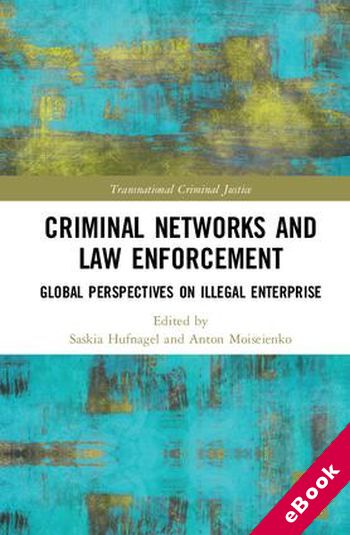
The device(s) you use to access the eBook content must be authorized with an Adobe ID before you download the product otherwise it will fail to register correctly.
For further information see https://www.wildy.com/ebook-formats
Once the order is confirmed an automated e-mail will be sent to you to allow you to download the eBook.
All eBooks are supplied firm sale and cannot be returned. If you believe there is a fault with your eBook then contact us on ebooks@wildy.com and we will help in resolving the issue. This does not affect your statutory rights.
This collection presents an analysis of illicit networks and discusses the practical implications for law enforcement and crime prevention. The authors draw on a range of methodologies and apply them to a variety of international criminological settings, from illegal fishing in the Indo-Pacific to corruption networks in Ecuador and Venezuela. The book thus cuts across geographical and methodological boundaries to elucidate the opportunities and challenges that analysis of illicit networks brings to criminological research and law enforcement, as well as to demonstrate the diversity of possible approaches in the field. The work addresses the manifold aspects of how and why criminals form stable or fluid networks of cooperation, what patterns of interaction within those networks are observable in various contexts, and how they can be disrupted.
Part I of the book covers the creation of criminal networks and the factors that influence the criminals’ decision to cooperate. Part II deals with criminal networks that are involved in various types of illicit trafficking activities, thereby aiding our understanding of their composition and operation. Part III examines the formation and functioning of illicit networks in the context of political life. Finally, Part IV summarises the state of literature on illicit networks and discusses the methods of disrupting criminal groups.
The book will be a valuable resource for scholars of criminology and criminal law, law enforcement personnel, postgraduate and advanced undergraduate students of criminology.